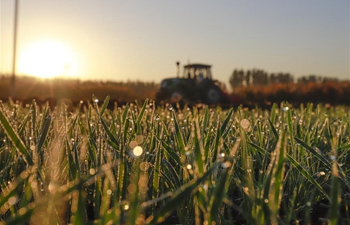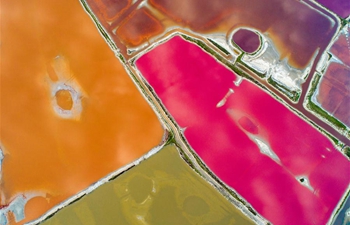SYDNEY, Oct. 10 (Xinhua) -- The risk of El Nino global warming events hitting the southern hemisphere is now at 70 percent or three times the normal level, raising the heat on severe drought-affected areas in eastern Australia, according to national weather authorities.
Recent patterns in the tropical Pacific Ocean and in the overlying atmosphere "indicate the early stages of an El Nino event could be underway," with any such event in spring typically meaning "below average rainfall across eastern and northern Australia and above-average temperatures in the southeast," the Bureau of Meteorology said in its latest alert issued Tuesday.
El Nino events are characterized by an unusual warming of the central to eastern equatorial Pacific, which can last up to one year, according to meteorologists.
The remote "ripple effects" can be found in the atmosphere as well as ocean currents and ecosystems. During an El Nino event, warmer waters gather in the eastern Pacific Ocean with cooler waters closer to Australia. This typically means less precipitation and rainfall over the Australian continent.
"Like everyone in the Australian community, the Bureau of Meteorology is hoping regions being affected by drought will recover soon. However, if an El Nino were to occur, we're more likely to see drier and warmer than average conditions," said the bureau's manager of long-range forecasting Dr Andrew Watkins.
Australia has been hit by one of its most severe droughts in recent months, with authorities ramping up aid to help the major eastern agricultural states of New South Wales and Queensland deal with low crop production and livestock losses.













